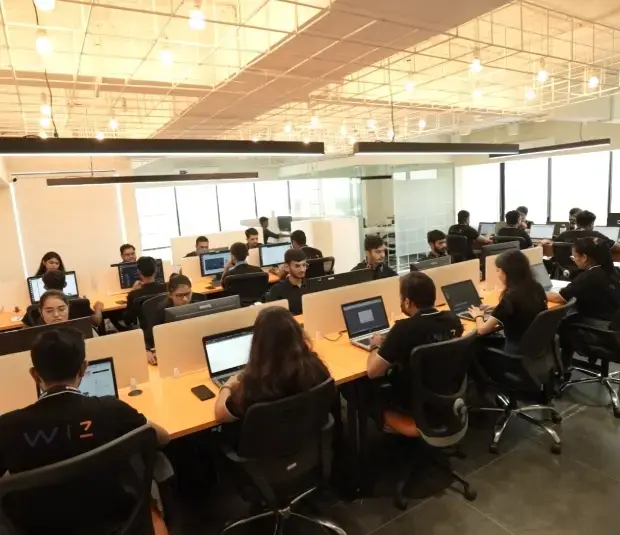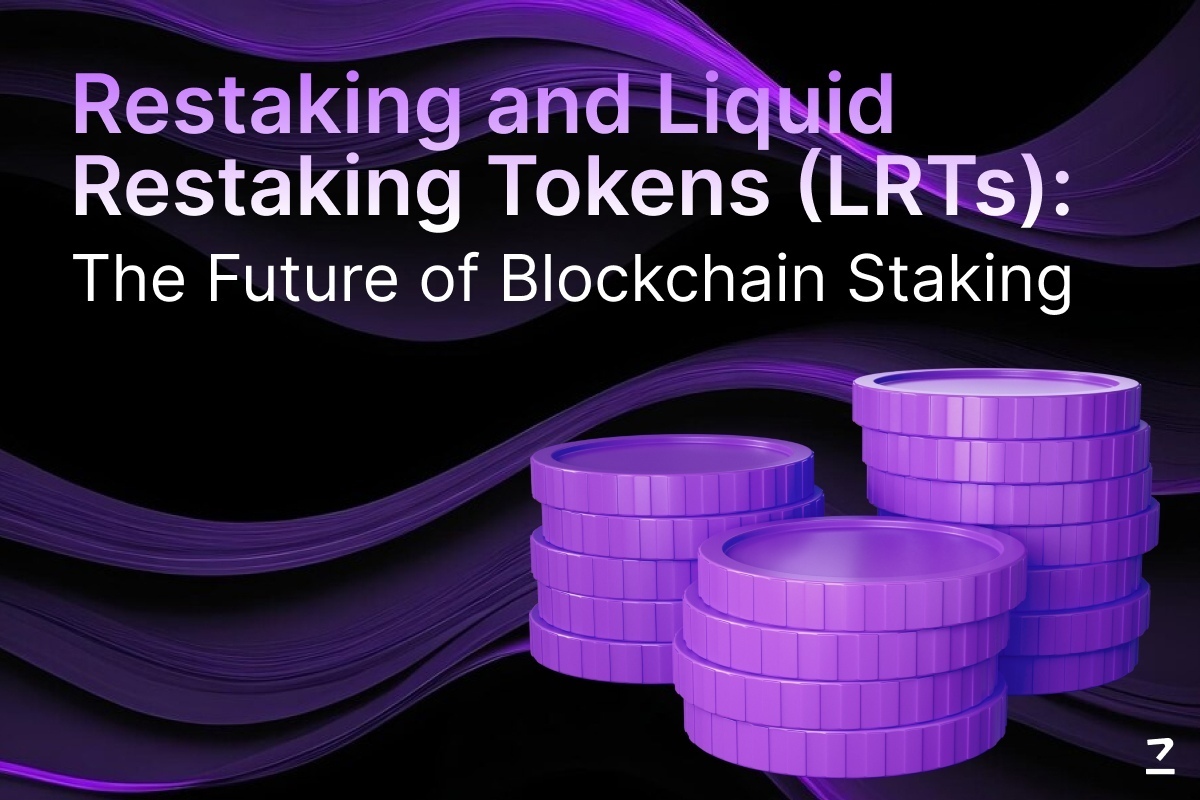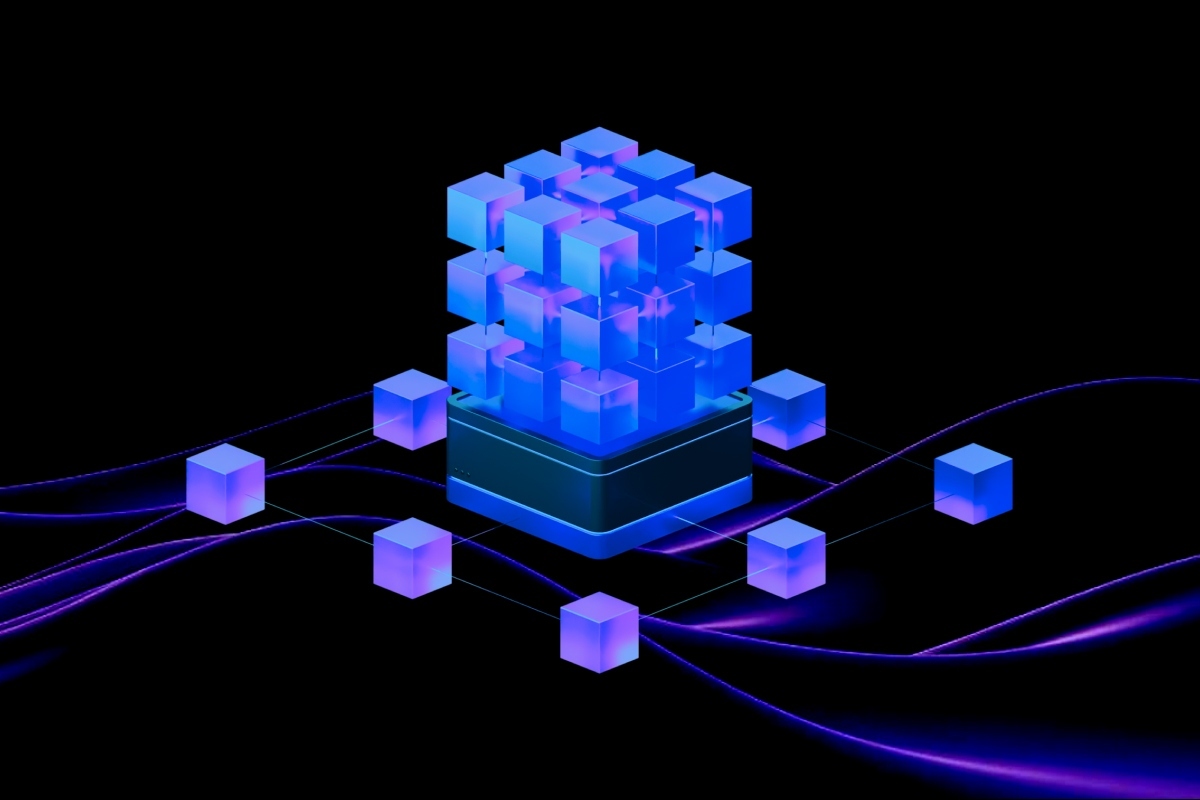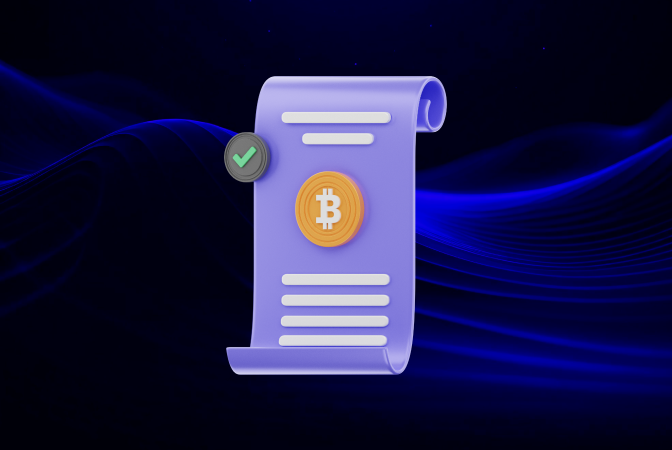SHARE THIS ARTICLE
What Is Data Tokenization and Why It Matters
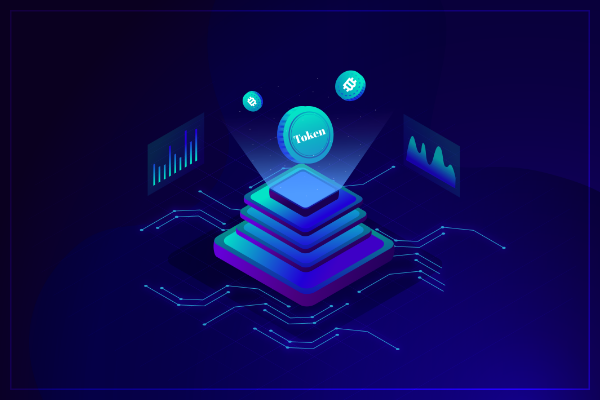
Data is arguably one of the most precious commodities in today’s digital world. The prominence of our personal information, financial records, sensitive business data, etc., has increased substantially, and thus, it is extremely crucial to ensure their security. What adds to this concern is how growing reliance on data has paved the way for a fresh wave of cyber threats and vulnerabilities. Consequently, it becomes all the more vital for individuals and organizations to amp up their defenses against data breaches.
Amidst this backdrop, data tokenization a prominent blockchain concept - emerges as a remarkably viable solution. In this guide, we will explore data tokenization in detail and why it is so important. We will also learn how tokenization blockchain development can protect your data from the ever-present specter of cyber threats.
What Is Data Tokenization?
Before we deep dive into the concept of data tokenization, let’s first understand what a token means in the realm of blockchain technology.
Understanding Tokens
A token is a non-mineable digital unit, essentially a registry entry within blockchain networks. It can function as a digital currency or encode data for specific use cases, making it a versatile digital asset that can take various forms and serve a multitude of purposes.
Typically issued on a particular blockchain platform like Ethereum or BNB Chain, tokens adhere to specific standards like ERC-20, ERC-721, or BEP-20. Unlike native cryptocurrency coins, tokens are transferable units of value built on top of a blockchain. One intriguing aspect of tokes is their potential to represent real-world assets (RWAs) such as gold or property.
In essence, a token serves as a digital representation of either an asset or a utility, finding numerous applications within decentralized applications (DApps). These tokens are created and managed through smart contracts, ensuring trust, security, and traceability in digital transactions.
Data Tokenization
Coming back to the core topic of discussion, data tokenization is a process of protecting sensitive data, such as credit card information or bank account details by replacing it with a “token” or placeholder. This token looks like gibberish and can be transferred, stored, and processed, without revealing the original data, keeping it safe from prying eyes. For instance, a bank account number can be tokenized into a random string of digits. Moreover, this token can be used for payment verification without exposing the actual number. Therefore, these unique and immutable tokens can be authenticated on the blockchain, bolstering data security, privacy, and compliance.
However, data tokenization isn’t limited to financial transactions; it extends to social media as well. With the option to tokenize their online identity, users can seamlessly transit between social platforms while retaining control over their personal data.
How Data Tokenization Works
The process of data tokenization involves multiple steps. Let’s explore them one by one.
-
Identification of Sensitive Data: First, sensitive data such as credit card numbers or social security numbers is identified for tokenization.
-
Tokenization System Creation: A tokenization system is established, which comprises secure databases, encryption keys, and token generation algorithms.
-
Data Mapping: A mapping table or database is constructed to maintain the connection between original data and tokens.
-
Token Generation: The tokenization system generates unique tokens, typically as numerical values or random letter strings, to replace sensitive data.
-
Data Substitution: These tokens are used to replace sensitive data either in batches or in real-time during data entry.
-
Tokenized Data Storage: Tokenized data, along with the related metadata, is securely stored in a tokenization database. Original sensitive data is never stored in its actual form.
-
Token Usage: Authorized systems or applications use tokens instead of sensitive data for tasks like transactions, analysis, or storage.
-
Token-to-Data Retrieval: Whenever necessary, the tokenization system can retrieve the original data linked to a token by referring to the mapping table or database.
It is essential to implement robust security measures in order to maintain the security of tokens, mapping data, and tokenization infrastructure. These procedures allow authorized systems to interact with tokenized data while ensuring the protection of sensitive information, making data tokenization a secure method for handling sensitive data.
To further explicate the process, consider the following example:
Imagine you have a credit card number, which is sensitive information. Instead of storing the actual number, you can tokenize it. Here's how it works:
-
Data Input: You provide your credit card number (a 16-digit number) to a system or application for processing.
-
Tokenization: The system uses a tokenization process to transform your credit card number into an alphanumeric string that appears random, like "AVF3856NKEN3958."
-
Secure Storage: This tokenized data is stored in the system's database. Even if a hacker breaches the system, they won't find anything valuable because they only have access to the tokens.
-
Decryption: When needed, the system can decrypt the tokenized data using a special decryption key to reveal the original credit card number.
Difference Between Tokenization & Encryption
While both tokenization and encryption are methods for protecting data, they work differently and have different applications.
Talking first about encryption, it is like the digital equivalent of a complex lock and key system. It converts plain text into scrambled code (ciphertext) that can only be deciphered with the correct decryption key. So basically when you encrypt data, it undergoes a mathematical transformation, rendering it unreadable for anyone except for those with the decryption key, which is often a lengthy and intricate string of characters. Encryption is a two-way process, meaning you can encrypt and decrypt data, making it suitable for data during transmission or storage.
Tokenization, on the other hand, replaces sensitive data with tokens, which are random and non-reversible. These tokens have no inherent meaning and are not mathematically reversible to the original data. Essentially it is a one-way process and a secure mapping table or database links tokens to the original data, ensuring data integrity.
So if we compare both approaches in terms of strengths and weaknesses, encryption is versatile and can be used to protect data both at rest and in transit. However, it requires managing encryption keys and can be more complex to implement and maintain. Tokenization is straightforward and easy to implement. It segments data to ensure that sensitive information is stored separately from tokens. It often simplifies compliance with data protection regulations as well due to its irreversible nature.
Ultimately, encryption is more viable where reversibility is essential and tokenization where data concealment and compliance are priorities.
Benefits of Data Tokenization
There are numerous benefits of data tokenization, owing to which organizations can improve data security and privacy. Here are the most noteworthy ones among them.
Enhanced Data Security
Data breaches are on the rise, with cybercriminals perpetually hunting for valuable information to exploit. The introduction of data tokenization provides an effective layer of protection. In the event that an unauthorized user manages to breach your database, all they encounter are inscrutable tokens. This significantly reduces the risk of unwanted access and data breaches, as these tokens remain utterly meaningless without access to the tokenization system.
Compliance with Regulations
Numerous industries grapple with stringent data protection regulations, such as the Health Insurance Portability and Accountability Act (HIPAA) in healthcare and the Payment Card Industry Data Security Standard (PCI DSS) concerning payment card information. Data tokenization is a key tool for ensuring compliance with these regulations, as it helps protect sensitive data. Therefore, businesses find data tokenization blockchain services incredibly effective in aligning with industry standards for data protection and fulfilling regulatory obligations.
Simplified Data Handling
Dealing with sensitive data can be complex and risky. However, with tokenization, you can significantly simplify data management processes. Tokens offer the advantage of freer storage and transmission, thereby mitigating the inherent risks associated with sensitive data. In addition to improving the efficiency of data operations, data tokenization permits authorized systems and applications to work with tokens in a straightforward manner, without the need for decryption or the exposure of sensitive information.
Improved Customer Trust
Data breaches pose a severe threat to a company’s reputation. However, when customers know that data is protected using tokenization, they are more likely to trust your business with their information. Therefore, by showcasing a dedication to data protection and security, tokenization leads to increased customer loyalty.
Scalability and Flexibility
From startups to large enterprises, data tokenization can scale to meet the needs of businesses of all sizes. Its scalability is a key advantage, as it can seamlessly align with the evolving requirements of your growing business. Moreover, the approach is flexible enough to be employed across various data types, platforms, and applications, ensuring that it remains a robust solution regardless of your organization's size or evolving requirements.
Prominent Use Cases of Data Tokenization
Owing to the benefits we just explored above, data tokenization finds its applications in various areas. Most notably in the following sectors.
Payment Processing
Tokenization is most commonly used in payment processing to protect credit card information during online transactions. When a customer makes a purchase, their card details are replaced with a token that has no meaning or value outside of the payment system. The token can then be used to process the payment without exposing the actual card information to the merchant or any other third party. This reduces the risk of data breaches, fraud, and identity theft, and also helps merchants comply with PCI DSS and other regulations.
Social Media
Social media platforms can use data tokenization to protect user data like personal information, preferences, and content. Furthermore, users can tokenize their online profiles, allowing seamless transitions between social platforms while retaining control over personal data. This not only safeguards data but also allows users to exercise greater control over their digital identities. For instance, users can sell their tokenized social media data to advertisers and researchers and even create custom rules for their profiles and content.
Non-Fungible Tokens (NFTs)
Data tokenization plays a pivotal role in securing digital assets when it comes to NFTs. NFTs or Non-Fungible Tokens represent unique digital assets that can be tokenized on a blockchain to establish ownership and provenance. This ensures their authenticity and integrity and makes them more secure, verifiable, and transferable. For example, an artist can tokenize their artwork and sell it as an NFT, proving its authenticity and ownership. An NFT buyer can also resell or trade the tokenized artwork on a secondary market.
Healthcare
Healthcare organizations rely on data tokenization to enhance the security of patient records. This crucial practice guarantees the confidentiality of sensitive medical information while ensuring compliance with strict privacy regulations. By tokenizing medical records, healthcare providers can boost patient trust and maintain the integrity of their data.
E-Commerce
E-commerce platforms employ tokenization to secure customer data such as personal information, shipping addresses, and payment details. This enhances customer trust and loyalty, as well as encourages online shopping. Tokenization allows e-commerce businesses to store and use tokens instead of actual data, which reduces the amount of sensitive data they have to manage and protect. Tokenization also enables e-commerce businesses to offer convenient features such as one-click and zero-click payments, which use tokens to process payments without requiring customers to enter their card information every time.
Cloud Storage
Many cloud service providers offer tokenization as part of their security features. Tokenization is an extra layer of protection for files and data stored in the cloud, especially if they contain sensitive or confidential information. Tokenization replaces the original data with tokens that can only be accessed by authorized users or applications. This prevents unauthorized access, leakage, or theft of the data, even if the cloud storage is compromised. Tokenization also helps cloud users comply with data protection and privacy regulations, such as GDPR and CCPA.
Are There Any Limitations of Data Tokenization?
While data tokenization is a powerful tool for data security, it's essential to understand its limitations and where it may not be the ideal solution. Here are some key limitations to keep in mind.
Tokenization System Vulnerabilities
While tokenization boosts data security, the tokenization system itself can be vulnerable if not adequately protected. If cybercriminals gain access to the tokenization system, it may compromise the security of the entire tokenized data set. Therefore, it’s crucial to implement robust security measures, including access controls, encryption, and monitoring, to protect the tokenization system from potential threats. Regular security audits and updates are essential to mitigate these vulnerabilities effectively.
Tokenization Can't Protect Against All Threats
While tokenization is effective at safeguarding data from many types of cyber threats, it may not provide protection against all forms of attacks. For example, it won't prevent phishing attacks or social engineering attempts to gain access to sensitive data.
Implementation Complexity
Setting up a robust tokenization system can be complex and may require significant initial investment in infrastructure and expertise. Small businesses with limited resources may find it challenging to implement tokenization effectively. Moreover, the ongoing maintenance of mapping tables, secure storage of tokens, and sensitive data, as well as the proper token production processes, can all add layers of complexity to the tokenization system. Ensuring that these components are managed efficiently is essential to the system's overall effectiveness and security.
Data Recovery Challenges
Tokenization renders data irreversibly, meaning you can't easily retrieve the original information from tokens. In scenarios where data needs to be restored or accessed in its original form, this can pose challenges.
Regulatory Compliance Considerations
While tokenization can aid in compliance with many data protection regulations, it's essential to understand that it's not a one-size-fits-all solution. To avoid any penalties or non-compliance issues, organizations must ensure that their tokenization approach aligns with specific regulatory requirements. Comprehending the legal and regulatory ramifications of tokenization is crucial in maintaining data security and compliance.
Token Management Complexity
Managing the lifecycle of tokens, including encryption keys and mapping tables, can be intricate. It requires robust security practices to prevent token-related vulnerabilities. Secure tokenization depends on efficient key management. Organizations are responsible for ensuring that the encryption keys used in the tokenization process are generated, stored, and rotated properly. Poor key management procedures can jeopardize the security of the tokens and the underlying sensitive data.
Securing the Future with Data Tokenization
Data tokenization is a powerful tool for safeguarding sensitive information in an increasingly digital world. By replacing valuable data with tokens, you can enhance security, comply with regulations, simplify data handling, and build trust with your customers. Implementing data tokenization requires careful planning and the right tools, but the benefits far outweigh the effort. So, if you’re looking to protect your data today and secure your digital future, at Codezeros, we are one of your best bets.
As a trusted token development company, we recognize the paramount importance of data security, and our proficiency in blockchain services, including cutting-edge data tokenization solutions, empowers businesses across diverse industries, whether in finance, healthcare, e-commerce, or any other sector. With our services, you can fortify your data defenses and effortlessly stay compliant with the ever-evolving regulatory landscape.
Don't leave your data exposed to potential threats. Connect with us today to explore how our advanced data tokenization solutions can elevate your data security and safeguard your most precious digital assets.
Post Author

As a distinguished blockchain expert at Codezeros, Paritosh contributes to the company's growth by leveraging his expertise in the field. His forward-thinking mindset and deep industry knowledge position Codezeros at the forefront of blockchain advancements.
Protect your invaluable data from breaches and cyber threats with data tokenization.
At Codezeros, we specialize in tokenization blockchain development which can help you effectively enhance your data security and integrity.
